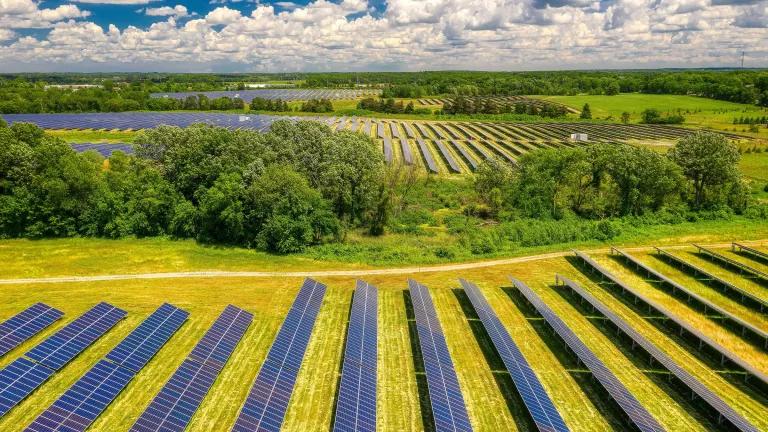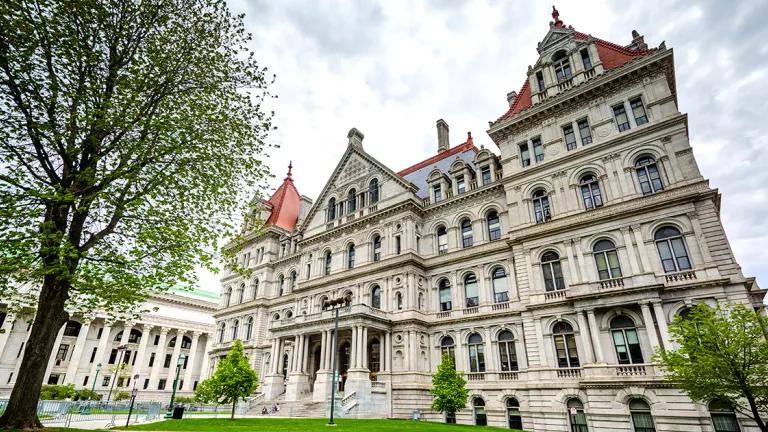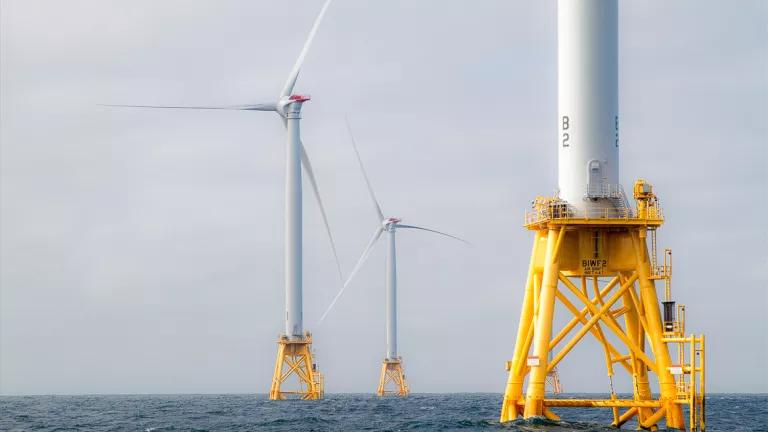Incentives for Energy and Transportation Are Climate Action
The newly minted Biden administration has made clear that climate change is a top priority. A vital arrow in the administration’s quiver should be tax policies including predictable and long-term extensions and upgrades to clean energy and clean transportation incentives. See here for a letter from 45 environmental, faith and business groups sent to President Biden today supporting robust clean economy tax policies. These policies will help clean energy and clean transportation play a critical role in building an ascendant 21st century American economy, putting people back to work, and laying the foundation for a cleaner, healthier and more prosperous future.
Prior to the COVID-19 pandemic, clean energy was one of the nation’s fastest-growing sectors and was projected to add 175,000 jobs in 2020. As we begin the new year, not only did those 175,000 jobs not materialize, but roughly 429,000 clean energy workers—comprising 12% of the sector’s pre-COVID workforce—are still out of work. These unemployment impacts are being felt all over the country, with 38 states and the District of Columbia suffering double-digit job losses in the clean energy sector. In addition to reviving good-paying jobs that pay 25% more than the national median wage, support for clean energy improves the overall health of the economy by leveraging private capital to accelerate climate progress and saving consumers money in difficult times. The clean energy and transportation sectors are also increasingly important sources of American innovation, energy independence and international competitiveness.
Clean energy is key to racial justice, as well, another top Biden priority. Poor and disadvantaged communities have borne disproportionate public health impacts from a legacy of fossil fuel production and use. Clean energy cuts dangerous air pollution while also addressing climate change.
Down Payment
The clean energy provisions in last year’s spending package provided emergency relief and a down payment on support for these innovative industries, but it is imperative that we now move beyond endless cycles of short-term stopgap measures and towards a long-term clean energy and clean transportation tax platform capable of effectively addressing the climate crisis.
Specifically, the Investment Tax Credit (ITC) should receive a full-value, long-term extension for solar, wind and other qualifying technologies, along with the new offshore wind ITC is needed, one with the option to use the Production Tax Credit (PTC), as well. Additionally, in order to rapidly deploy clean energy nationwide the energy storage and high-voltage transmission sectors should be made eligible for an investment tax credit on a standalone basis. And some version of the 48C manufacturing credit should be revived to grow domestic clean energy, electric vehicle and battery production in America.
The energy efficiency sector alone employs millions of Americans in nearly every community. Modernizing tax incentives for commercial and residential energy efficiency improvements can further increase the number of those jobs, along with saving small businesses, schools and all Americans money on their electric bills.
Lastly, the transportation sector is now the single largest source of carbon emissions in America. In order to reduce those emissions as quickly as possible while creating jobs in manufacturing and installation, the credit for alternative fuel infrastructure (30C) should be extended and modified to ensure these technologies can be rapidly deployed. The electric vehicle tax credit (30D) should be extended and modified to end the current per-manufacturer cap structure and make it available for a longer period.
Finally, given the continued uncertainty around tax equity, and to maximize utilization by the broadest range of stakeholders, all these tax incentives should be made “refundable” or include a direct pay option, or in the case of the electric vehicle tax credit, “point of sale,” option.
The House Ways & Means Committee made a good start on clean energy and transportation tax policy early this year, by recently reintroducing the GREEN Act which provides updates and extensions for a suite of renewable, energy efficiency, environmental justice and transportation. While these provisions represent a big step forward in terms of what Congress has offered around clean energy and transportation tax policy, we’d encourage them to work to grow the ambition of what can and should be signed into law. Specifically, allowing for 10-year extensions of the ITC and PTC (as opposed to the 5-year extensions now in the bill) could see a total transformation in the energy and transportation sectors—which is what the science says we need. Additionally, the strong labor standards included in the GREEN Act would help ensure that we are supporting the creation of high-quality, union jobs in the clean energy and transportation sectors. As this moves forward, we must ensure these incentives translate into gains for domestic manufacturing and address labor standards and domestic manufacturing.
We’d overall encourage the committee, leadership and the administration to ensure that whatever is passed and signed into law meets the ambition needed to tackle the climate crisis—and are happy to work towards that goal.
A stable, predictable and long-term clean energy and clean transportation tax platform would save consumers money and create good-paying jobs in every state. These incentives are one piece of the puzzle, not the entire range of policies we need. We need policies that bring the benefits of clean energy and clean transportation to historically marginalized communities, promote workforce development, support strong labor standards and spur domestic manufacturing.
America needs a strong recovery; we cannot afford to leave any jobs on the table. We must accelerate clean energy and clean transportation deployment to boost our economy, improve public health, protect our climate, advance energy independence and enhance our global competitiveness. We have a historic opportunity to act on the climate crisis. We should seize this moment and act now.



